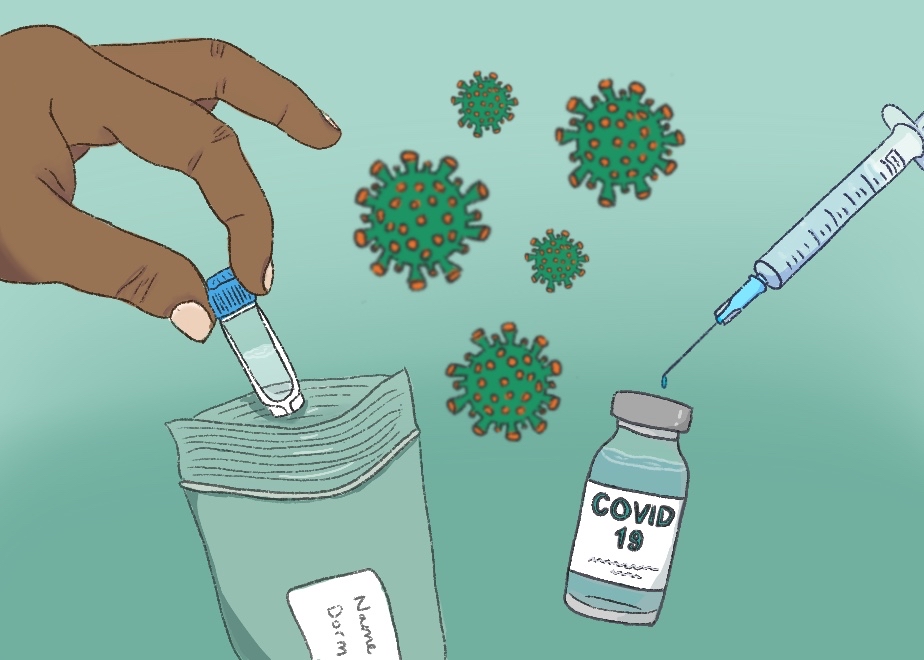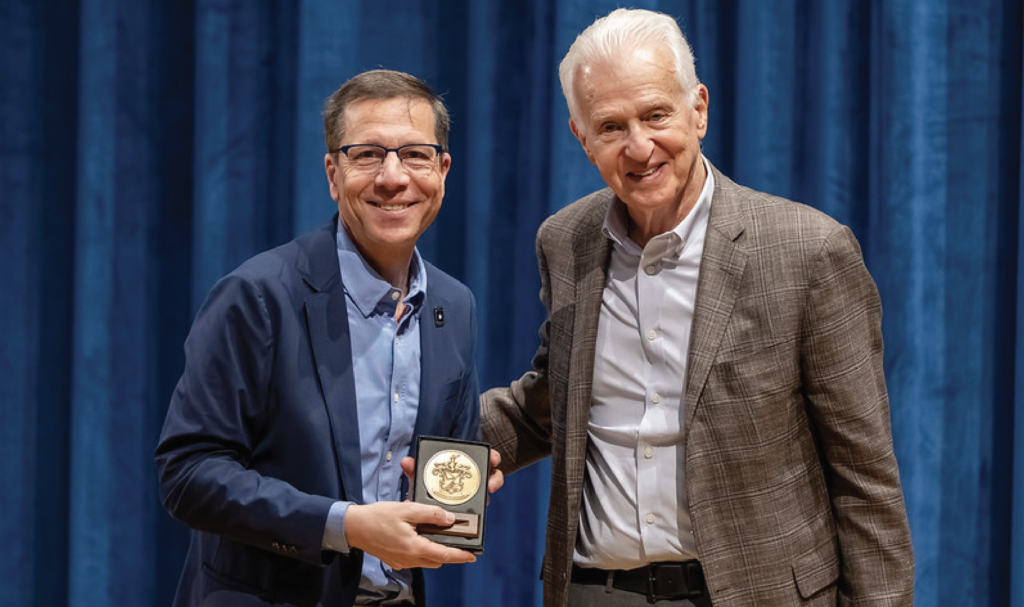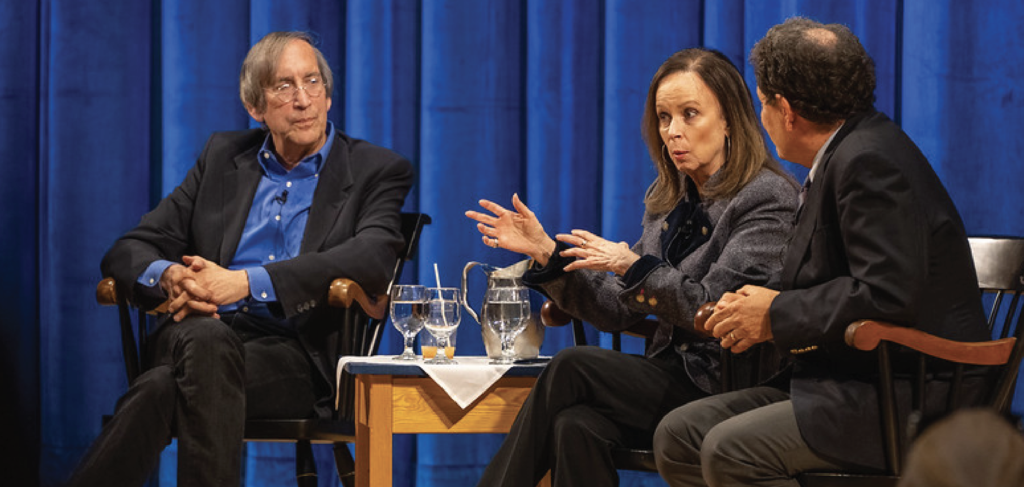
Graphic by Yujin Kim/The Choate News
As the spring term begins, student activities, sports, and academics are ramping up. However, much of the Covid-19 protocol has changed since the winter term. Eased restrictions are bringing a greater sense of normalcy to student life, but students remain cautious to defend themselves against the virus.
In previous terms, students waited weeks for sports to begin. This term, varsity sports began straightaway during the quarantine week. Last week for the first time all school year, Choate’s athletes competed against other schools, including the Westminster School, the Hotchkiss School, the Taft School, and the Loomis Chaffee School.
Restrictions for ensemble practices have also loosened with the start of the spring term. Woodwind and brass musicians, who were initially excluded from in-person rehearsals, can now be involved as long as they use special masks that allow them to play their instrument with their nose and mouth covered, and if they attach a separate cover to the end of their instrument to prevent the spread of germs. Medical Director Dr. Miriam Cohen is also hopeful that theater, dance, and musical groups will be able to perform outdoors, in front of an audience, later in the term.
These modified guidelines, however, were met with new Covid-19 modifications to fit Choate’s Safe and Sounder plan. For example, the return to interscholastic sports came with a five-page document regarding “Informed Consent in Interscholastic Sports,” which explains the risks associated with playing sports during the pandemic and outlines how sports are to safely operate. The Health Center asked all students and parents to review this document before participating in on-campus athletics.
The administration has also begun to more strictly enforce the usage of the TRACE app, despite students’ concerns about privacy. Every night, advisers are now required to ensure students’ TRACE apps are running. The school also has the ability to see who is and who is not running the app. Dean of Students Mr. Mike Velez ’00 has made it clear that failure to adhere to contact-tracing guidelines violates the Community Compact, which every student signed at the start of the school year.
Many students who learned remotely during the fall and winter are now on campus, and some day students have become boarders. Deven Huang ’23, typically a day student who now lives in Tenney House, said, “Everyone in my carpool decided to board, and I didn’t want to burden my parents with having to drive me to school every day.” He especially enjoys being with his friends in the dorm and getting to sleep in later each school day, as his commute is shorter.
As they were during the fall term, day students are allowed to commute to campus for in-person classes. Day student David Garsten ’23, who stayed home for the first two terms, is excited to meet the community in person. “Once the first vaccine takes effect, I will be returning to campus,” he said.
While the number of students on campus from winter to spring remained relatively constant, far fewer boarding students decided to stay online for the spring term. At the end of the winter term, there were 307 students online — comprised of 203 boarders and 104 day students — and that number has lowered to 104 for the start of April. This shift was a result of many formerly remote boarders coming back in person, as well as 171 day students switching to daily commuting rather than staying home.
Additionally, students will be tested twice weekly for Covid-19, boarders in their dorms and day students at the health center. The number of weekly tests could increase if the health staff deems that it’s appropriate for the level of risk.
The loosening of the guidelines can be attributed, in part, to the rollout of the Covid-19 vaccine in recent months. In an update shared with Choate students on April 2, Dr. Cohen spoke about Choate’s partnership with local organizations to vaccinate interested boarding and day students older than 16. These vaccinations will likely begin in late April and will be free. In addition, anyone who has received the first dose of the vaccine can schedule their second through the Health Center.
The vaccine rollout has also made faculty members more optimistic. “I’m hopeful that we will be able to move to the yellow, lower risk, category sometime this spring,” said Dr. Cohen. According to the Choate Safe and Sounder website, this would require no cases of Covid-19 on campus, less than five cases per 100,000 people in Connecticut, and a test positivity rate below 3%. Transition into the yellow phase will allow boarders to be unmasked in each other’s rooms. The health staff will attempt to devise a similar rule for day students to also be unmasked within their day student rooms.
HPRSS teacher Mr. Jonas Akins echoed Dr. Cohen’s sentiment, saying that he hopes the spring term will be “intentionally shaped by lessons drawn from these four terms” and that the upcoming terms will “celebrate the best elements of our community.




